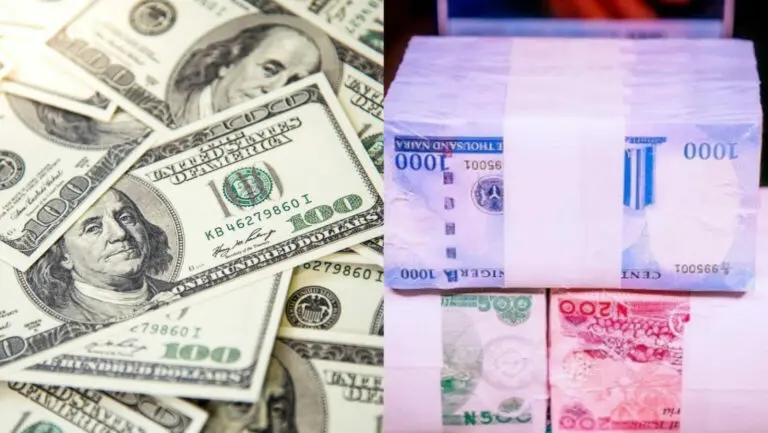
The International Monetary Fund (IMF) has warned that the exchange rate of the Naira will further depreciate by about 35 percent this year, adding that this could lead to inflation rate peaking at 44 per cent before the monetary policy tightening could bring the situation under control.
IMF revealed this in its February 2024 Post–Financing Assessment and Staff Report, noting that Nigeria’s monetary policy is currently insufficiently tightened to bring inflation below 20 per cent while pressures on the Naira persist.
The IMF report noted that amid the absence of local production and the recent liberalisation of commodity imports, the exchange rate would likely depreciate further.
IMF said the uncertainty over Nigeria’s net international reserves level poses additional risks, as would exogenous further shocks that impact external stability, poverty, and food insecurity.
The publication further stated that the fiscal deficit could increase above six percent of GDP in 2024 and 2025, driven in part by increased transfers to quell social unrest (one per cent of GDP) and a rise in the implicit fuel subsidy.
“With limited external financing options and higher expenditures, there is increasing use of CBN and domestic financing. The authorities implement expenditure measures in 2026, for example, phasing out the implicit fuel subsidy but the debt to GDP ratio still rises by six percentage points above the baseline by 2028.
“The spike in inflation and rise in uncertainty trigger portfolio outflows, and Nigeria is unable to access Eurobond financing. Reserves decline to $17 billion in 2025. Obligations due under the RFI peak at over eight per cent of officially reported reserves.
“Nigeria would be able to repay the fund, even in the downside scenario. This assumes that the authorities continue to prioritise external debt service. However, debt service would compete directly with urgent humanitarian needs to tackle rising poverty and food insecurity that would need to be prioritised.
“Therefore, even assuming the authorities reserve the remaining SDR allocation for RFI repayments, trade-offs could be severe.
“The uncertainty over Nigeria’s net international reserves level poses additional risks, as would exogenous further shocks that impact external stability, poverty, and food insecurity.”
The Federal Inland Revenue Service (FIRS) has begun its recruitment exercise for experienced professionals to…
Primate Elijah Ayodele Unveils 94-Page Prophecy for 2025, Makes Striking Predictions About Nigeria’s Political and…
The Senior Special Assistant to President Bola Tinubu on Community Engagement (North Central), Abiodun Essiet,…
The Minister of Information and National Orientation, Mohammed Idris, has warned politicians against linking stampedes…
Tobi Adegboyega, founder of the Salvation Proclaimers Anointed Church (SPAC Nation), has stated that he…
The Independent Petroleum Marketers Association of Nigeria has said that petrol is going to sell…